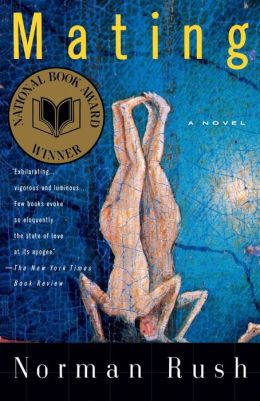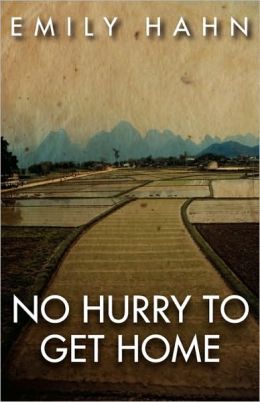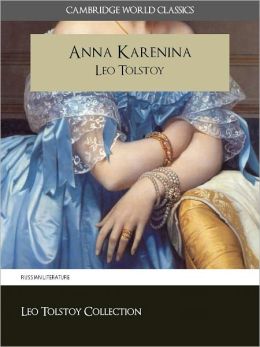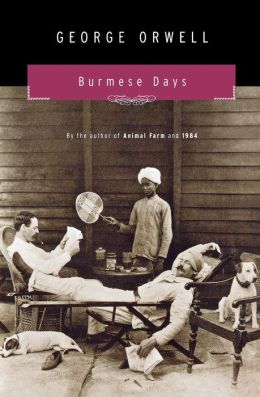Nina Sovich is an American writer who lives in Paris. She is releasing a travel memoir in July 2013 titled To the Moon and Timbuktu. She has written for Reuters, the Wall Street Journal, Time magazine and the Patriot Ledger. She blogs on travel and raising children in France on www.thesestolendays.com/blog. Every year, at this time, I find myself rereading books I loved as a younger woman. It might be that the holidays make me nostalgic. It might be too exhausting to discover great new fiction or it seems too selfish to buy a present for myself. It may have to do with the fact that I drink more than usual around Christmas and if I don’t read something familiar at night I’ll lose the plot.
I list below the books I love to read, many of which I have read before, that I will inevitably read again. These are not happy stories, but there is a certain authoritative melancholy to them that works in the dark month of December. Many are books that center on the family and wonder on the notion of love. Many have a strong moral voice or ask ethical questions, which I find acts as an antidote to all the hysterical cheer of the holiday season. Most importantly, all contemplate escape—from an overbearing Russian husband, a large family in St Louis, the decay of a colonial outpost, even from the myth of African salvation. These books make me feel like myself again, giving me the fortitude to start the New Year.
Lie Down in Darkness. William Styron. This book came out in 1951 just as the intelligentsia, if not the nation, was realizing the life of convention-bound, country club-going WASPs wasn’t all it’s cracked up to be. As Virginia gentry, the Loftis’s drink and fight, abandon each other, rip each others’ hearts out and then scream for protection. Love is the least stable element in this family, resentment the most. Styron writes with urgency, despite all the hot summer afternoons and gentle landscape descriptions, and every scene is filled with real terror. Who will save them? Why must they do this to each other? Will the selfish, beautiful damaged daughter Peyton escape, at least a moment, before her death? So much is at stake, yet nothing need be lost. For any woman who has marveled at her mother’s callousness and her father’s adoration, this is your book.

Mating. Norman Rush. This book is told through the eyes of a smart, unnamed female graduate student who casts out into the Kalahari desert in order to find a commune run by a brilliant anthropologist. She is tough, smart, well-read and romantic. The professor, on the other hand, is a total phony. He spouts social theory, contemplates Marx and sets about the unwinnable task of creating an African utopia by eliminating African men from the equation. The book is both a discussion of obsession and a strong commentary on foolish white expats who try to save Africa. I read it in my 20s, as I travelled the world in search of a cause, and saw worrying reflections of my own life. Perhaps I aspired to escape ordinary American life for something cleaner, more structured, theoretical and moral. But, in the end, there was always a man at the heart of it--calling the shots, talking about equality… doing nothing.
No Hurry to Get Home. Emily Hahn. This is a compilation of autobiographical stories from The New Yorker that Hahn wrote starting in the late 1920s. She writes a big life for herself, without ornament or hyperbole, and even the small family anecdotes lead to greater freedom. Mickey (Hahn’s nickname) and her sister wear knickerbockers to school, because skirts are impractical, and earn press attention. Mickey goes to college far from home, where she startles the professors by studying engineering. She travels across the country with a friend and gets a job as a writer. Every step is taken with the hope that the world will bend to her conventions and not the other way around. In the end, it does. Soon the girl from St. Louis is travelling alone through the Belgian Congo, recording the racism and hypocrisy of the colonizers. She is smoking opium in China and reflecting on addiction. She is in love with a British intelligence officer and watching the Japanese invade Hong Kong. She lived so many lives in this one book that any one of them would do for me.
Anna Karenina. Leo Tolstoy. The story is known--Anna Karenina abandons her staid husband and young son to run away with her the rich, handsome Count Vronsky. The great thing about this book (yes, I am here to tell you) is that the moral stakes are high, but Tolstoy doesn’t write judgment into the pages. As a young, single woman, I sympathized with Anna and felt she had the right to pursue happiness, even if she abandoned her young son. Now that I have my own marriage and children, I find myself wondering if old Karenin was such a bad guy after all. I read this book over and over again, always changing my mind. And if Anna’s poor choices and narcissism becomes a bit too much there is Levin, a sweet and conflicted man who falls for the lovely Kitty. ‘Freedom what is the good of freedom?’ Levin thinks. ‘Happiness consists only in love and desiring; in wishing her wishes and in thinking her thoughts…” That’s a man I can get behind.
Burmese Days. George Orwell. The entire colonial enterprise and all its failures are laid bare here. There are vicious British colonial officials who live for gin cocktails and enmity. Dr. Veraswami, a cultured Indian doctor, whose only pathetic desire is to get into the European club. U Po Kyin the corrupt Burmese official who has money and power but can only see enemies around him. But the heart of the story centers on one British man’s loss of identity and faith. John Flory, drunk, alone, and high up the white man’s pedestal, the view has become blurry. His best friend is Dr. Veraswami, but he won’t admit it. He keeps a Burmese mistress but won’t love her. When the young Elizabeth Lakersteen comes to Burma he courts her, but he has forgotten the small-minded, provincial ways of his countrymen. Needless to say it goes horribly, unbearably wrong.




